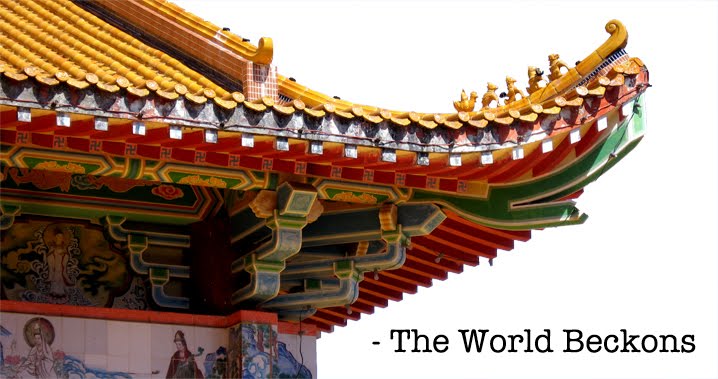 |
| Vendors hawk their wares at the Maasai market. |
If only it smelled as good.
Sitting on grey tarps covered with wood and stone carvings, beaded jewellery and toys, blankets and paintings that repeated themselves from shop to shop, women constantly implored us to check out their wares. Maasai sat draped in traditional beads, their stretched ear lobes grazing their narrow shoulders. Gnarled fingers became artfully entwined in wires-full of beads, dancing as they crafted ornate neck pieces.
If the vibrant colours were not enough to make you think your brain had been inserted into a kaleidoscope, the sheer hustle and bustle may have.
And hustle they did.
Before so much as entering the market, we had already made many new ‘friends’ who promised to guide us around and help us make a deal. I soon had three, who placed items in which I had expressed a mild interest into a shopping bag. “These are ‘the maybes,’ we call them,” one said.
They were very friendly, but tenacious. Shopkeepers called over: “promote something of mine – buy something, even small.” Word of our presence spread quickly and everyone always seemed to be aware of where we were, what we had looked at and what we might be interested in. This, despite the size and commotion of the market. One salesperson even came up to me and said I worked in communications.
I had not told anyone.
 |
| Colourful fabrics hang in the Maasai market. |
For a half hour, we shared back pats, laughs, jokes and conversations about our families. Numbers and conversion rates turned to slurry in my mind.
I negotiated down to 14,500 KSH before giving him 2,000 KSH and asking for change. I had not converted correctly in my head and I soon realized the extra zero I had overlooked made for a ridiculous price. I walked away anew, saying we were not even close enough to begin a negotiation.
“Name your price, my friend,” he said. “You’ll be insulted,” I replied. “Insult me,” he added with a big smile. The game was back on.
I felt no pressure because I did not need any of the gifts I was purchasing and I have plenty of time to pick something up – outside the city where prices are generally lower, no less.
Sensing a deal slip away as I inched closer to people I knew who had finished their shopping, one of the salesmen left, frustrated. His two colleagues did not give up so easily. They kept at it, taking turns, and eventually offering 3,500 KSH – even trying to play to my emotions. “I have five children and two wives, and I haven’t eaten today,” one said.
I decided I would not budge from 2,400 KSH and held strong until we finally agreed for 100 shillings more – minus a necklace of trade beads they said they wouldn’t even take less than $50 for on its own.
While I may have still paid mzungu prices, I was comfortable both with my purchases and with supporting the local economy. It was exhausting, and while I do not tend to enjoy haggling, it remains a central aspect of the culture here. This time I even had fun with it.
“You are a hard bargainer,” one said before shaking my hand goodbye, his eye already tilted toward his next mark.

Whatdya buy me, whatdya buy me!! :)
ReplyDelete